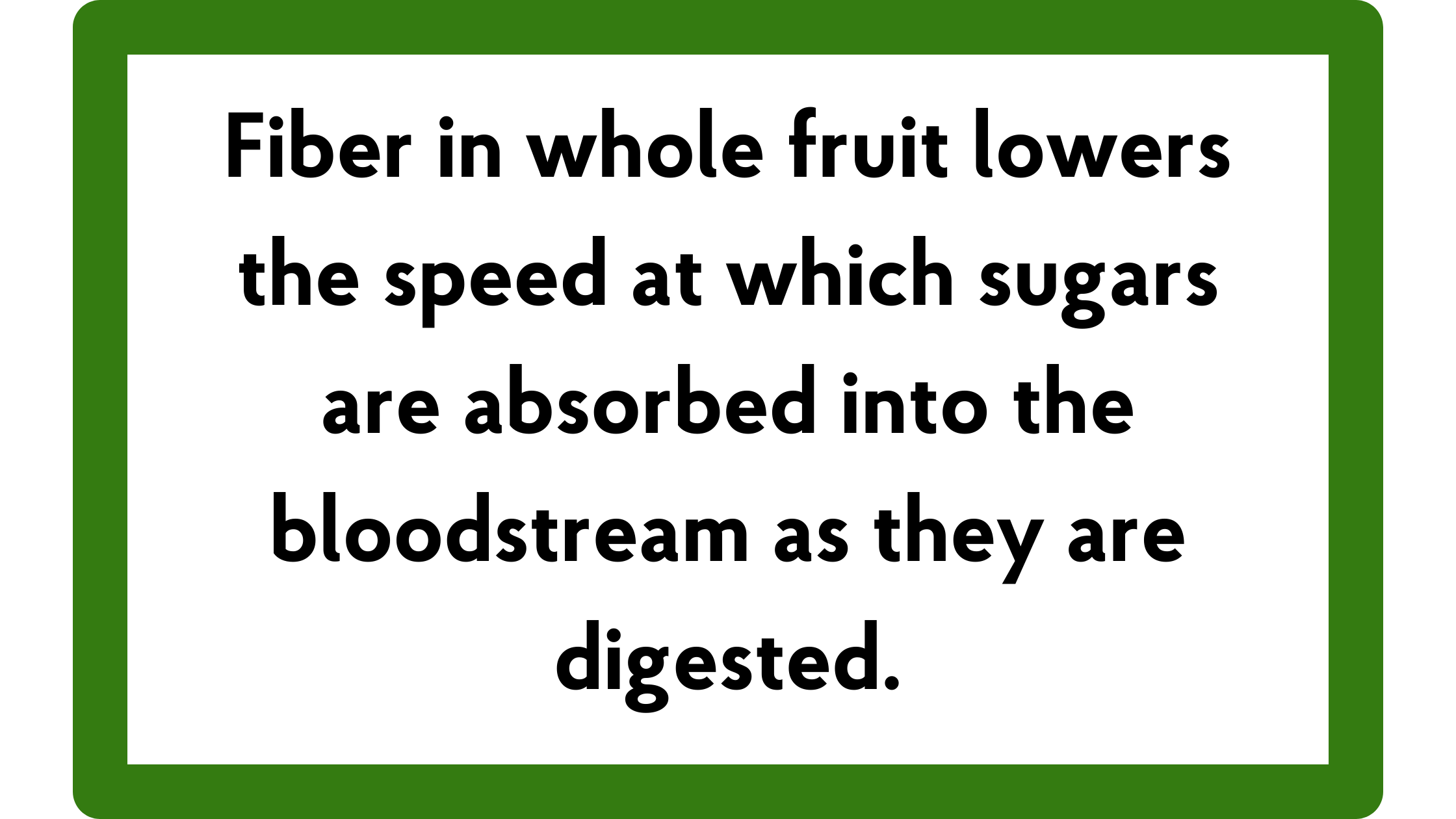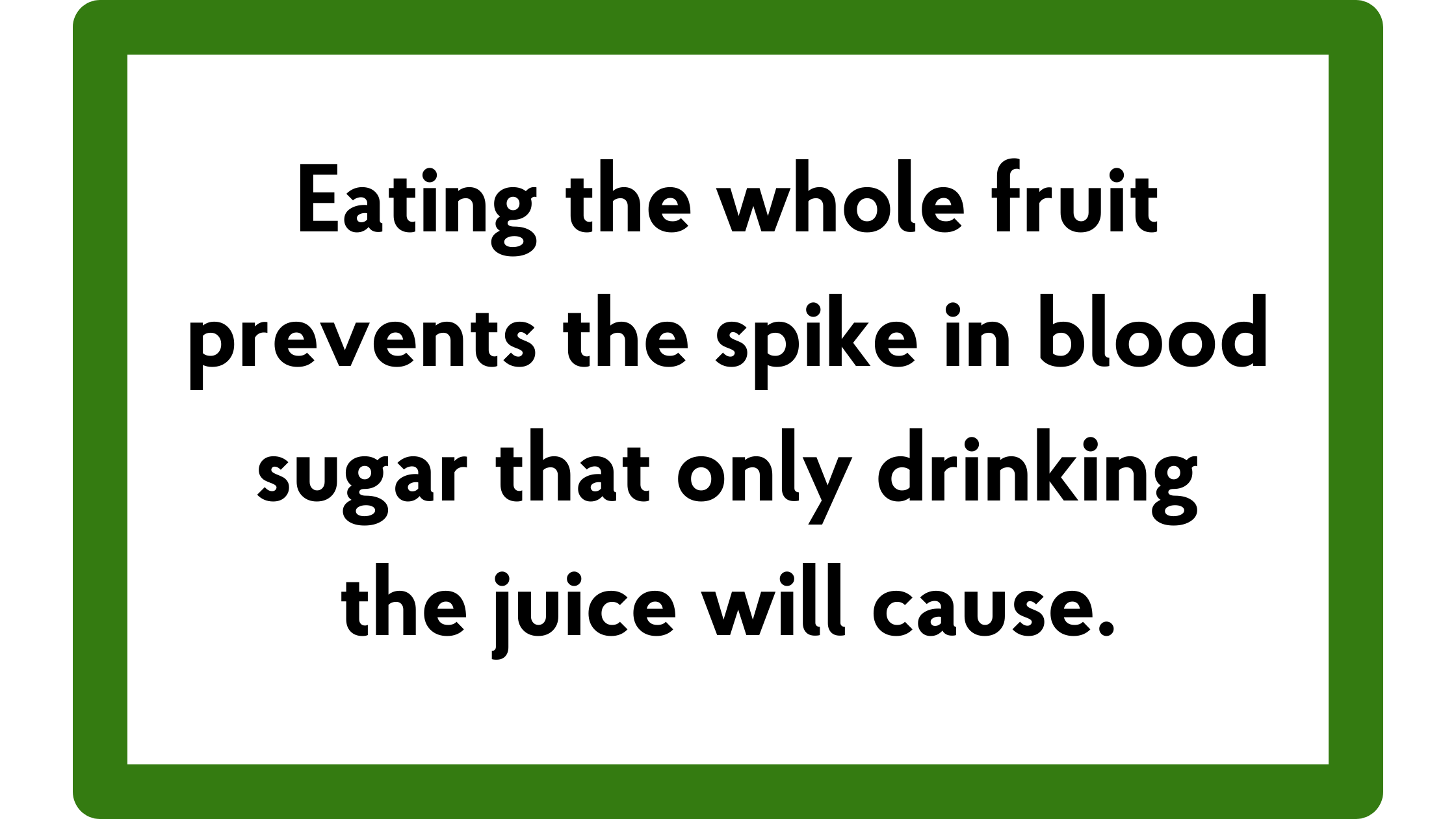Is Fruit Healthy for Diabetics?
 There is so much confusion about sugar that we end up eating foods we think are good for us but aren’t, or avoiding foods that are good for us in their natural whole form. This is the case with fruit. Preventing diabetes and controlling blood sugar levels for those who have it traditionally focused on restricting the amount of sugar that we consume. However, in recent years with more dietary studies and data on how diet impacts most chronic diseases, including diabetes, heart disease, and common cancers, that is changing. It turns out that it is not sugar, in general, that is the cause of diabetes. The data now shows that it is too much saturated fat, processed sugar, and too little fiber in our diet that increases inflammation in our body. It is the inflammation that sets us up for diabetes or other chronic diseases.
There is so much confusion about sugar that we end up eating foods we think are good for us but aren’t, or avoiding foods that are good for us in their natural whole form. This is the case with fruit. Preventing diabetes and controlling blood sugar levels for those who have it traditionally focused on restricting the amount of sugar that we consume. However, in recent years with more dietary studies and data on how diet impacts most chronic diseases, including diabetes, heart disease, and common cancers, that is changing. It turns out that it is not sugar, in general, that is the cause of diabetes. The data now shows that it is too much saturated fat, processed sugar, and too little fiber in our diet that increases inflammation in our body. It is the inflammation that sets us up for diabetes or other chronic diseases.
Sugar, Fiber and the Glycemic Index
This means we need to avoid or limit processed sugars, and other processed foods in which the fiber has been removed. The glycemic index (GI) which measures the rate at which a type of sugar enters our bloodstream, is related to the amount or absence of fiber in the sugar. Processed sugars, e.g. white sugar, other refined table sugars, and high fructose corn syrup in particular, are the most detrimental. And typical white bread is so processed that it can have a higher GI than white sugar, so avoid it and choose bread made with whole grains!
 Agave, also a processed sugar, enjoyed popularity for a time because of its low glycemic index; however, it is very high in fructose, making it a problem for the liver. Of the four basic types of sugars, fructose is the most detrimental in a processed form because it makes it harder for the liver to produce insulin. Sugar in the form of glucose, which is essential for energy, and also fructose, are found in fruit. Does that mean diabetics and those of us concerned about lowering the amount of inflammation in our body–and our risk of chronic disease–have to avoid fruit?
Agave, also a processed sugar, enjoyed popularity for a time because of its low glycemic index; however, it is very high in fructose, making it a problem for the liver. Of the four basic types of sugars, fructose is the most detrimental in a processed form because it makes it harder for the liver to produce insulin. Sugar in the form of glucose, which is essential for energy, and also fructose, are found in fruit. Does that mean diabetics and those of us concerned about lowering the amount of inflammation in our body–and our risk of chronic disease–have to avoid fruit?Thankfully the answer is no, as long as we eat the fruit the way nature “packaged” it! Enjoying the tastes and health benefits of eating whole fruit the way it comes from the earth means that the fiber in the apple, orange, pear, etc., gives our digestive tract what it needs to slow down the absorption of the glucose and fructose the fruit contains. Eating the whole fruit prevents the spike in blood sugar that only drinking the juice will cause. Eat your fruits, rather than drink them, to keep your blood sugar from spiking and feeding inflammation; this is even more important if you are diabetic. And if you really want an occasional fruit-flavored beverage, dilute a small amount of fruit juice in a glass of sparkling or plain water, and sip slowly to prevent a blood sugar spike.

Juices, Smoothies and Fiber
Many of us enjoy smoothies, and should be mindful that even in a smoothie, the fiber in the fruit or vegetables has been broken down in the blender and therefore is less effective in buffering the sugars they contain. The best advice if you want to have a smoothie is to sip it slowly and not gulp it down to help the body gradually absorb the sugars and avoid a spike. This is an example of how learning to eat mindfully allows us to enjoy and benefit from the widest variety of fresh plant foods by eating them and using them in recipes in their whole or minimally processed form.
By all means, keep fresh whole fruit on your plate and lose the saturated fat, which for most of us comes primarily from eating meat and dairy! You will not only lower your risk for diabetes, but you will also lower your risk for heart disease, many common cancers, and cognitive diseases like Alzheimer’s as you age. Sweet!
Note: If you are being treated with medication for diabetes or other chronic conditions, check with your doctor or health care provider before making dietary changes. It is important to have your progress monitored as medications may need to be adjusted or eliminated. The material presented here is for information purposes and is not a substitute for medical advice.


